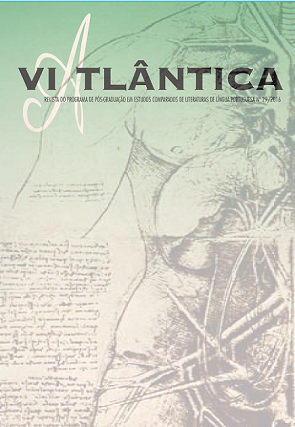Eu sou um outro: narrativa literária como forma de conhecimento
DOI:
https://doi.org/10.11606/va.v0i29.119439Palavras-chave:
narrativa e medicina, humanização narrativa, identidade narrativa, Graciliano Ramos, José Cardoso PiresResumo
Em “O direito à literatura” (1a ed. 1988), o crítico literário brasileiro Antonio Candido defende que a literatura “é uma forma de conhecimento, inclusive como incorporação difusa ou inconsciente”, e que “é grande o poder humanizador desta construção, enquanto construção” (CANDIDO, 2011, p. 179, itálicos do autor). A visão do crítico, focando especificamente nos estudos literários, relaciona-se a alguns conceitos-chave da filosofia contemporânea, que privilegiam a hermenêutica como exercendo um papel central no processo de conhecimento humano. A partir dessas afirmações e defendendo, com Greenhalgh e Hurwitz, que “alguns episódios de doenças são marcos importantes nas narrativas de vida dos pacientes” (GREENHALGH, HURWITZ, 1999, p. 48, trad. livre) e que “os aspectos formais do texto carregam informações importantes a respeito do universo narrativo [do paciente], informações estas que não se encontram disponíveis no conteúdo do que é representado” (CHARON, 2006, p. 98, trad. livre), este artigo analisa duas narrativas literárias sobre doença (o conto “Paulo, de Graciliano Ramos, e o livro De profundis: valsa lenta, de José Cardoso Pires), em comparação com uma composição curta, escrita pelo jovem L. F., que morreu de um osteossarcoma aos 19 anos, para apontar um padrão relacionado à despersonalização do narrador ou à sua fragmentação em duas ou mais subjetividades, uma delas representativa da parte doente do corpo e/ou do eu. No limite, postula-se, com base na hermenêutica filosófica, o conceito de humanização narrativa.Downloads
Publicado
Edição
Seção
Licença
Copyright (c) 2016 Fabiana Buitor Carelli

Este trabalho está licenciado sob uma licença Creative Commons Attribution 4.0 International License.
Autores que publicam nesta revista concordam com os seguintes termos:
- Autores mantém os direitos autorais e concedem à revista o direito de primeira publicação, com o trabalho simultaneamente licenciado sob a Licença Creative Commons Attribution que permite o compartilhamento do trabalho com reconhecimento da autoria e publicação inicial nesta revista.
- Autores têm autorização para assumir contratos adicionais separadamente, para distribuição não-exclusiva da versão do trabalho publicada nesta revista (ex.: publicar em repositório institucional ou como capítulo de livro), com reconhecimento de autoria e publicação inicial nesta revista.
- Autores têm permissão e são estimulados a publicar e distribuir seu trabalho online (ex.: em repositórios institucionais ou na sua página pessoal) a qualquer ponto antes ou durante o processo editorial, já que isso pode gerar alterações produtivas, bem como aumentar o impacto e a citação do trabalho publicado (Veja O Efeito do Acesso Livre).



















